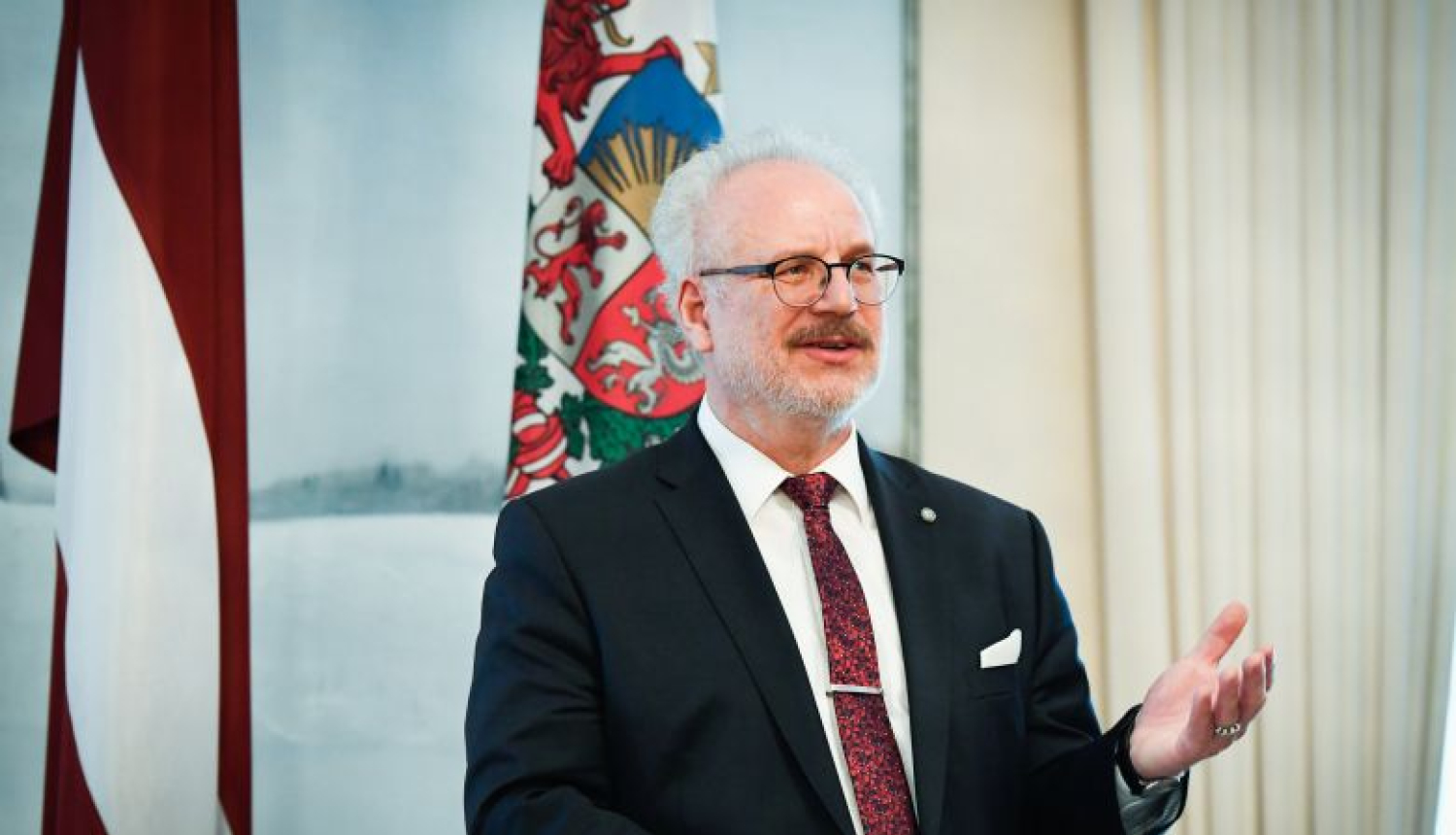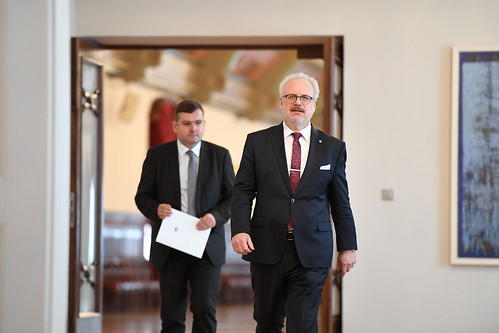Honourable Chair,
Dear members of the State Language Commission and linguists,
Dear ladies and gentlemen,
I
We have gathered here today to open the Volume X of ‘State and language’ devoted to our official language, Latvian.
Thank you to everyone who contributed their article to this collection. And thank you to publishers and editorial team because our language proficiency is a combination of how well we use our language and how well we know it. I had a little peek into the book before the opening and it contains a wealth of knowledge about Latvian language, indeed.
I would also like to use this opportunity to thank Mr Veisbergs for chairing the State Language Commission and all members of it for all their work.
II
This work will now continue in a slightly different format. There will be a series of what we might call legacy projects. First event in the series of conferences will focus on the role of Latvian in science. Why science? Well, because we often discuss the extent of the usage of Latvian in our country. Official statistics suggest that the share of Latvian-speaking population of our country has not been growing much in the past two decades. It is quite unusual for a country where the official language is the native language of 60.5%–62 % of population. Although official language plays specific role in our country, it indicates that something is not entirely right with our official language environment.
Professor Andrejs Veisbergs already outlined the link between the state and the language. Latvian is the building block of Latvian identity. It is not the only building block, but nonetheless a fundamental one. Other nations may have other elements than language, but most identities of European nations are based on native language, and it is particularly true in the case of Latvia. We can even say that without Latvian (which came under threat of extinction in the late 19th century), if educated Latvians living in cities would have chosen German over Latvian as their lingua franca, there would most likely be no state of Latvia. Not even most likely. There would definitely be no Latvia. Therefore, Latvian is the source and the cause of our state.
Latvia has the duty to take care of its own future, we must protect and develop our language. Linguists play an important role not only in terms of language studies, but also in terms of continuity and sustainability of our state in future. Hence, I have proposed to the Saeima, our parliament, to designate two new commemorative days that are in my opinion significant for the Latvian nation.
One of them is National Resistance Movement Day because we not only suffered from but also actively resisted occupation, and resistance should be more pronounced in our collective memory. We need it to have better understanding of the importance and value of our state.
The other is Official Language Day. There are also other informal and international language-themed events, such as Poetry Days that are in a way linked to language. However, let me emphasise the role of state language in this context. So, it is about these two words – the state and the language. It implies that language plays certain political and social role. And the role given to Latvian is the role of the only official language, and Ms Poriņa was among those who suggested this special status and took part in the parliamentary debate described in the introduction of Satversme. Latvian is not just the official language; it is the only official language. The preamble of Satversme, our constitution, provides a more elaborate understanding of the provisions of Paragraph 4 which states that the Latvian language is the official language.
I have suggested to designate the 15th of October as the Official Language Day. It is the day when our national language was given its constitutional status, i.e. for the first time in the history of Latvia, on 15 October 1998, Latvian was lifted to constitutional level. We are not the only country that has constitutionalised its official language, and the group of such countries is rather small. This means that we have given our official language a very important social role. Latvian is the language of democratic participation and the language in which we all communicate.
‘Language of communication’ is a self-explanatory term. It means that we mostly use Latvian to communicate with each other. ‘Language of democratic participation’ means that our democratic discourse and public discourse are in Latvian to enable all people living in Latvia to participate in such discourse.
Official language status of Latvian means that all inhabitants must know and use the language. Interestingly, another country whose constitution stipulates that its citizens must know and use the official language is Spain and its constitution.
Spain is a multilingual country and, contrary to Latvia, it is also a multinational country. But it is not politically multinational. Spanish constitution states that all its inhabitants, irrespective of whether they are Spanish, Basque or Galician, must speak Spanish in public.
Our Satversme, the interpretation of Paragraph 4 and the preamble, actually gives the Latvian an official language status. Therefore, I believe it is important to highlight the status of official language to the society and it will now be continuously done through education reform, which will significantly reduce the linguistic segregation and eventually ensure that all people living in Latvia do know and use the official language.
At the same time, we must, of course, focus on the development of language itself. Linguists have the responsibility to ensure that our language continues to develop in the age of information and globalisation. We must constantly work on the development of Latvian language to make sure it allows us to express all our thoughts and ideas in their entirety. That is why we have already agreed with Professor Veisbergs that the next linguistic conference will focus on the use of Latvian in science. It is essential to ensure that we have all the scientific terminology in our official language. Science is an important driver of Latvia’s development.
III
A couple of days ago I discussed this issue with several representative of European countries. I heard scepticism about a rather large language, spoken by about 50 million people, loosing its role in science. I thought to myself: this is a big concern for Latvia, as well, and we should also start thinking how to make sure the population of Latvia can tap into global information flows and at the same time our language continues to develop and remain strong as the official language. That is a very interesting challenge and I am very much looking forward to linguists sharing their insights into how to address this challenge during today’s conference.
IV
Thank you to all those who came up with the idea of the book, authors, publishing house ‘Zinātne’ and State Language Commission, its chair and all the members for their work that will now continue in a different and more active format.





